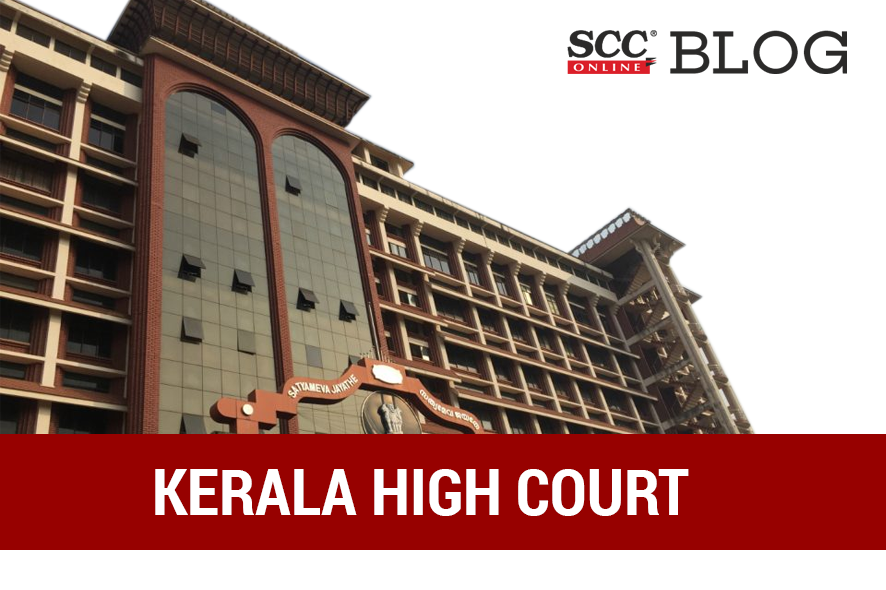Kerala High Court: In a batch of Writ petitions by the ‘Other Members’ and ‘Ex-Officio Members’ nominated by the Chancellor under Section 17 of the Kerala University Act, 1974 (‘1974 Act’) challenging the withdrawal of their nominations by the Chancellor while exercising the ‘Doctrine of Pleasure’., Sathish Ninan, J. held the withdrawal under Section 18(3) proviso 4 of 1974 Act cannot be sustained and quashed the same.
Understanding the legal stance, Section 18(1) of 1974 Act lays that the Senate shall be reconstituted every 4 years, Section 18(2) keeps the term of office of members nominated as ‘Ex-Officio Members’ as 2 years from the date of nomination and Section 18(3) contains provisos whose 4th proviso contains the validity of office of ‘Other Members’ till the pleasure of the Chancellor. Section 17 of the Kerala University Act, 1974 (‘1974 Act’) provides for constitution of Senate of University which contains 4 categories of members:
-
Ex-Officio Members
-
Elected Members
-
Life Members
-
Other Members
The facts shows that the Vice Chancellor in office was due to retire on 24-10-2022 and Section 10(1) of the 1974 Act postulates the constitution of a 3-member ‘Search-cum-Selection Committee’ by the Chancellor for appointment of Vice-Chancellor. One of the members is elected by the Senate, one is nominated by the Chairman of University Grants Commission (‘UGC’) and the third member is nominated by the Chancellor. The Chancellor appoints the Vice Chancellor on unanimous recommendation of the Committee.
Foreseeing the Vice Chancellor’s retirement on 24-10-2022, the Chancellor required the Senate to nominate a member for constituting the 3-member Selection Committee through communication dated 13-6-2022. However, he got an impression of lack of co-operation from the Senate wherein, his nominated members were also aiding the inaction, which led to the withdrawal of those nominated members from the Senate.
The Court explained the current standing of the ‘Doctrine of Pleasure’ in India that “the authoritarian doctrine, though couched in an unfettered manner, is but subject to the rule of law.”
The Court relied upon Deepak v. University of Kerala, 2014 SCC OnLine Ker 28564 wherein, the Bench observed that there must be reasons for withdrawal of the nominations of Senate members while exercising pleasure, and that there is scope of judicial intervention only when the exercise of power is arbitrary. The Court considered whether the exercise of pleasure doctrine was arbitrary, capricious or malafide.
The Court scrutinized the process of nomination under Section 17 and observed that “the nomination is to ensure the representation of cross sections of the Society from specified categories.” Further examining the scope of terms ‘nomination’, ‘nominate’ and ‘nominee’, the Court concluded that the process of nomination under Section 17 is not an act of constituting an agent or mouthpiece to speak his master’s voice, but only exercising the power to name a person from a particular category/class as per Section 18.
Considering whether the withdrawal was vitiated by ‘arbitrariness, capriciousness or mala fides’ or whether the exercise of doctrine of pleasure was justiciable, the Court scrutinized the term “Arbitrary” and “Capricious” through Sanchit Bansal v. Joint Admission Board, (2012) 1 SCC 157 and various other sources. The Court looked into the series of events and concluded that “the constitution of the Search cum Selection Committee and the appointment of its Convenor as per notification, are not in accordance with law” and further observed that the Chancellor seems to have considered Senate resolution requesting him to withdraw notification enabling constitution of a Search-cum-Selection Committee in accordance with Section 10(1) of 1974 Act as a challenge on his authority.
The Court said that “while this Court is not to sit in judgment or appeal over the reasons for withdrawal of nomination, it is evident that the order is not based on any reason, but rather founded on prejudice.” The Court examined proviso 4 to Section 18(3), relied on Saji D. Anand v. State of Kerala, 2016 SCC OnLine Ker 21468 and clarified that “when statute provides for a specific term of office and does not provide for withdrawal therefrom at pleasure, the doctrine of pleasure does not operate.”
The Court held that the orders of Chancellor withdrawing nominations of Senate Members by invoking doctrine of pleasure under Section 18(3) proviso 4 cannot be sustained and liable to be interfered with.
The Court allowed the present writ petitions and quashed the withdrawal of nominations of members from the University Senate and constitution of ‘Search-cum-Selection Committee’ and Convener of the Committee.
[Dr. K.S. Chandrasekar v. University of Kerala, 2023 SCC OnLine Ker 1794, judgment dated 24-3-2023]
Judgment by: Justice Sathish Ninan
Advocates who appeared in this case :
For Petitioners: Senior Advocate P. Ravindran, Advocate N. Raghuraj, Advocate Vivek Menon, Advocate Sayujya, Advocate Elvin Peter P.J., Advocate Abhijith K. Anirudhan, Advocate Sreelekshmi A.S., Advocate Gouri Balagopal, Advocate K.R. Ganesh, Advocate M.R. Sabu, Advocate Lakshmi Ramadas, Advocate Aparna Rajan, Advocate Sreedhar Ravindran;
For Respondents: Senior Advocate S. Gopakumaran Nair, Senior Advocate K. Jaju Babu, Standing Counsel Thomas Abraham, Standing Counsel S. Prasanth, Standing Counsel M.U. Vijayalakshmi, Special Government Pleader to Attorney General T.B. Hood, Advocate Nisha George, Advocate A.L. Navaneeth Krishnan, Advocate.






